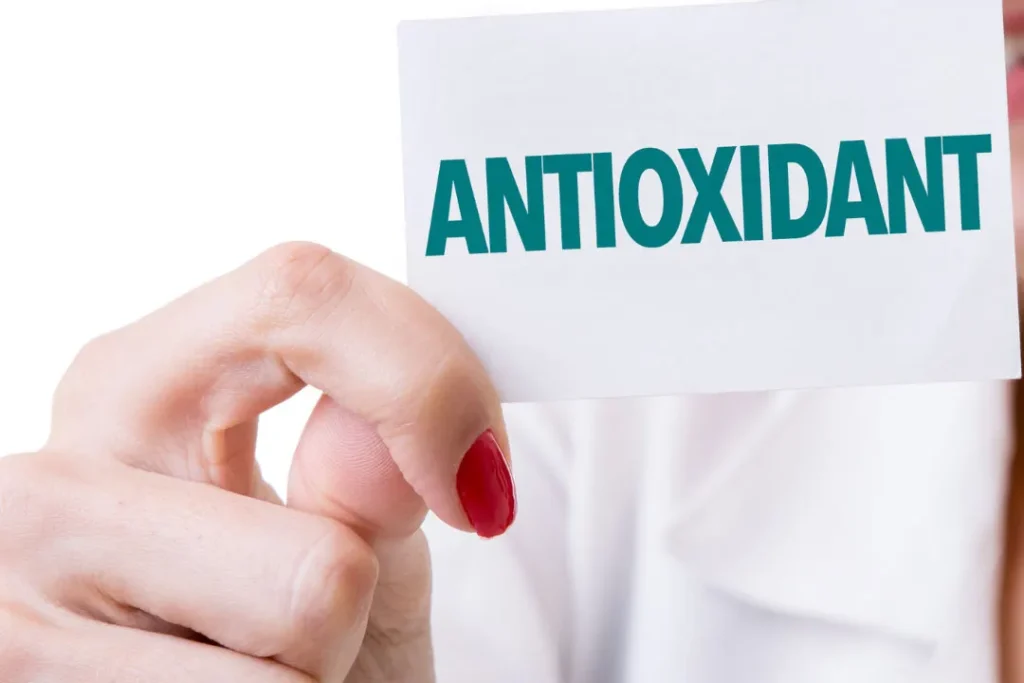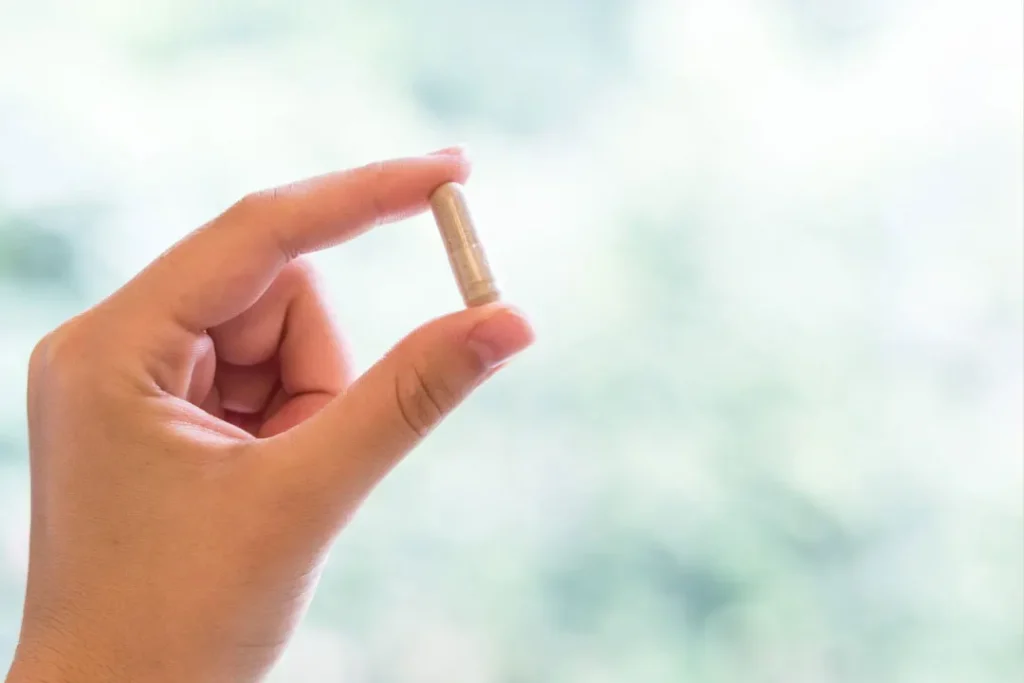Saffron is a well-known spice that has long been used in traditional medicine and cookery. It is made from the dried stigmas of the perennial iris-family plant, Crocus sativus, whose blossom bears the same name. Although saffron is well known for its unique flavor and vivid orange-red color, it also has a number of health advantages such as antioxidant properties and mood elevation. The chemistry of saffron, its physiological mode of action, potential benefits, ideal dosage, side effects, drug interactions, and responsible use will all be covered in this essay.
You May Also Like:
Nature of Saffron
The flower of the Crocus sativus shrub is used to make the spice known as saffron. The plant is indigenous to the Mediterranean area and belongs to a member of the iris family. Reddish-orange saffron stands out for its unique color, taste, and aroma. The female reproductive portion of the blossom called the pistil contains the stigma. Stigma is hand-picked and dried to create saffron threads which are what make up the spice. Saffron is one of the most costly spices in the world because it requires a lot of “labor” during the cultivation and harvesting processes.
Several medicinal substances, including crocin, picrocrocin, and safranal, are present in saffron. Picrocrocin adds to the bitter flavor of saffron while crocin gives it its distinctive color. The flavor and fragrance of saffron are brought about by safranal. Many of the health benefits of saffron can be attributed to these compounds, which have been discovered to have medicinal properties.
Health Benefits of Saffron
Saffron has a number of health advantages, including the capacity to elevate mood and lessen stress and depression, which is possibly linked to better cognition. Additionally, it has been discovered to possess antioxidant and anti-inflammatory qualities, which may aid in lowering stress response and inflammation in the body.
Saffron’s capacity to elevate mood and lessen the signs and symptoms of anxiety and melancholy is one of its primary health advantages. According to numerous studies, saffron can reduce depressive symptoms no less than traditional antidepressant drugs. It is even better because saffron does not bring about the adverse effects those traditional antidepressant drugs are known for. In one research, saffron was found to be just as effective as the anti-anxiety drug, lorazepam at reducing the signs and symptoms of anxiety.
Saffron has shown the potential to improve cognition. It has been shown in numerous studies that it can enhance cognitive abilities such as recall, attention, and processing speed. According to one study, saffron supplementation improved mild cognitive impairment in older people. This may be linked to its antioxidant qualities that are able to protect the brain cells from oxidative damage.
Additionally, the anti-inflammatory qualities of saffron have been discovered. This quality has the potential to lessen inflammation in the body, which is believed to play a role in a number of chronic diseases, such as cancer, diabetes, and cardiovascular disease. There was a study in which saffron supplementation decrease inflammation in patients with metabolic syndrome.
Chemistry of Saffron
Crocin, picrocrocin, and safranal as mentioned above, are just a few of the substances that are present in saffron. The compound crocin contributes to saffron’s vivid orange-red color. It has been shown to have anti-inflammatory, antioxidant, and antitumor effects. Picrocrocin, which gives saffron its distinctive bitter taste, has been discovered to have possible antitumor and hepatoprotective properties. Safranal which contributes to the fragrance has been shown to have sedative, anxiolytic, and antidepressant properties.

Physiological Mechanism of Action of Saffron
The impacts of saffron on the brain have been linked to a number of physiological mechanisms of action. Its primary mechanisms of action that describe the brain impact include its capacity to raise serotonin levels. Serotonin is a type of neurotransmitter that is involved in mood control and cognitive function. In addition, saffron has also been found to boost dopamine levels that can elevate motivation and accentuate the feeling of reward. A neurotransmitter involved in memory and learning, acetylcholine, has also been discovered to be increased by saffron.


Optimal Dosage of Saffron
The ideal saffron dosage depends on the intended outcome as well as the person’s age, sex, and general health. Saffron is typically taken in doses of 15–30 mg daily for cognitive enhancement, 30–50 mg daily for depression, and 30–200 mg daily for anxiety. It is crucial to remember that saffron can be toxic at large doses; doses greater than 5 grams daily have the potential to be fatal. As a result, it’s crucial to adhere to the dosage recommendations and seek medical advice before consuming saffron supplements.
Side Effects of Saffron
Saffron is generally regarded as safe when consumed in the suggested doses, but some people may experience side effects. Some of the common side effects are headaches, nausea, and dizziness. More serious adverse effects from high doses of saffron include vomiting, diarrhea, and even death. If you are taking any medication, especially antidepressants, blood thinners, or antipsychotics, it’s essential to speak with your doctor before taking saffron supplements to avoid any potential interactions.


Potential Substance Interactions with Saffron
As was previously stated, saffron might interact with drugs like antidepressants, blood thinners, and antipsychotics. St. John’s wort and valerian root, these two supplements and herbs that have mood-regulating properties, may combine with saffron. Therefore, if you are taking any medications or other supplements, it is crucial to speak with a healthcare professional before consuming saffron supplements.


Responsible Use of Saffron
It is crucial to adhere to dose recommendations when using saffron supplements and to speak with a healthcare professional before doing so. Additionally, it’s critical to buy saffron pills from reliable vendors because some supplements may contain fillers or inferior saffron. In order to avoid the degradation of the active compounds, saffron supplements should be kept in a cool, dry location away from light and heat.
Saffron:
Conclusion
Saffron is a powerful antioxidant that comes from the flower of Crocus sativus which can help in lowering the body’s stress response. Thus, if you are seeking to relieve symptoms of depression or would like to improve your mood from supplementation, saffron provides a good option to do so.
It is also said that this supplement has a certain level of cancer-fighting properties because it can protect cells from chemical modifications that may lead to irreversible DNA mutations. You should always be cautious when beginning a new supplement regimen because the wrong combination with saffron supplement could result in negative effects on the body. Hence, it is important to seek advice from your healthcare providers and source saffron from a reputable supplier.
References:
- Health Benefits of Saffron: Antidepressant, Anti-anxiety, and Cognitive Improvement Effects and then link: https://www.healthline.com/nutrition/saffron#section4
- Saffron: Chemical Composition, Bioactive Compounds, and Health Benefits and then link: https://www.sciencedirect.com/science/article/pii/S1756464619301234
- Saffron for Cognitive Enhancement: A Systematic Review and Meta-analysis and then link: https://journals.sagepub.com/doi/full/10.1177/0269881119867709
- Potential Health Benefits of Saffron, Including Antioxidant and Anti-inflammatory Properties and then link: https://www.medicalnewstoday.com/articles/323756
Important Note: The information contained in this article is for general informational purposes only, and should not be construed as health or medical advice, nor is it intended to diagnose, prevent, treat, or cure any disease or health condition. Before embarking on any diet, fitness regimen, or program of nutritional supplementation, it is advisable to consult your healthcare professional in order to determine its safety and probable efficacy in terms of your individual state of health.
Regarding Nutritional Supplements Or Other Non-Prescription Health Products: If any nutritional supplements or other non-prescription health products are mentioned in the foregoing article, any claims or statements made about them have not been evaluated by the U.S. Food and Drug Administration, and such nutritional supplements or other health products are not intended to diagnose, treat, cure, or prevent any disease.
